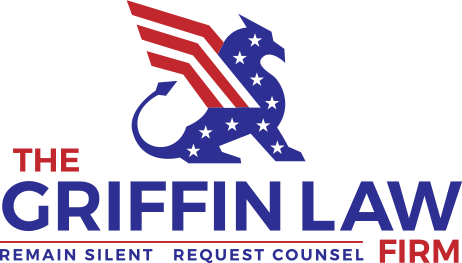
Military Criminal Defense Lawyers in Norfolk, VA
UCMJ Defense Attorneys Providing Justice & Legal Services for Clients Across the World
Our Norfolk military criminal defense lawyers at The Griffin Law Firm are former military officers with years of experience handling UCMJ criminal violations.
The military justice system of the United States exists to maintain discipline within the military. The military needs its own justice system, separate from the civilian criminal justice system, for several reasons. For one, the military often needs to regulate laws outside of the country’s borders.
However, the most practical reason is military members adhere to many rules and regulations that simply do not apply to most civilians and fall outside of the jurisdiction of civilian courts.
These rules and regulations can be found in the Uniform Code of Military Justice, abbreviated as UCMJ. The statutes found in the UCMJ are federal laws that apply to all service members, across all branches.
Service members are still subject to civilian law and can be tried in civilian courts, which is most common for crimes that involve civilians. However, they are normally handled in Non-Judicial Punishment (NJP) proceedings for minor violations of the UCMJ or in military trials, known as courts-martial (also seen as courts martial or court-martials).
Call (888) 707-4282 today or message our lawyers to schedule a free phone consultation with our Norfolk UCMJ defense attorneys.
Courts Martial and UCMJ Criminal Defense
What Are Court-martials?
A courts-martial is a legal proceeding conducted by the military, in order to try members of its armed forces for violations of military law. It is similar to a civilian criminal trial, but with different rules and procedures.
Court-martials may be convened to hear any case involving an alleged violation of the Uniform Code of Military Justice (UCMJ). Cases heard by a court martial can range from minor offenses such as disobeying orders or failing to appear for duty on time, to more serious crimes such as desertion or assault.
Depending on the gravity of the offense and evidence presented, punishments meted out by a courts-martial can include the following:
- Confinement
- Fines
- Reduction in rank
- Forfeiture of pay
- Dismissal from military service.
When a courts-martial is convened, it is presided over by a military judge and may include officers who serve as jurors. The accused can be represented by an attorney or other defense counsel. Court-martials are governed by the UCMJ and must adhere to certain due process requirements in order to ensure fairness.
Serious violations of the UCMJ are treated in one of the three courts-martial, depending on the type and severity of the crime. The types of courts-martial are summary courts-martial, special courts-martial, and general courts-martial.
Summary Courts-Martial
Summary courts-martial involve one officer who judges and decides the case. These are for UCMJ infractions that are too serious to be seen in Non-Judicial Punishment proceedings but not serious enough to be included on one’s criminal record. Usual punishments include labor, confinement, and reduced rank or pay grade.
These proceedings (like those for NJPs) are Article 15 proceedings, meaning they are not considered criminal justice proceedings; however, you are still allowed to seek legal counsel and representation (at your own expense).
Special Courts-Martial
Special courts-martial are similar to civilian misdemeanor trials and involve a military judge and a panel of three service members, who try the case. Alternatively, the accused can request that the case be decided by the military judge alone. Unlike with summary courts-martial, special courts-martial do result in criminal charges for service members found guilty.
Punishments include forfeiture of pay (up to six months), reduction of pay grade, hard labor (up to three months), confinement (up to one year), or even a Bad Conduct Discharge (BCD). The accused party can either receive free legal representation or hire a UCMJ defense lawyer at their own expense.
General Courts-Martial
Of the three courts-martial, general courts-martial are most comparable to felony courts. They are reserved for the most serious criminal violations of the UCMJ. They typically consist of a panel made up of at least five service members and a military judge, although the accused can request to be tried only by the military judge.
Punishments can include lengthier terms of forfeited pay, hard labor, and confinement, as well as dishonorable discharge and, although extremely rare, capital punishment. Like with special courts-martial, the accused can be represented by a free attorney, but they can also seek their own UCMJ defense attorney.
Common Mistakes Made When Facing Court-Martials
Facing a court-martial can be an overwhelming experience for any service member. However, being aware of and avoiding common mistakes can greatly improve the chances of a favorable outcome. Here are some of the most frequent errors:
- Not Seeking Legal Representation Immediately: One of the gravest mistakes service members can make is not seeking legal counsel as soon as they learn they are facing a court-martial. Regardless of the perceived severity of the charges, having a knowledgeable defense attorney is crucial for navigating the complexities of military law.
- Making Statements Without an Attorney: Many service members, in an attempt to explain their side of the story, make the mistake of speaking to investigators or their chain of command without legal representation. This can lead to self-incrimination or providing information that can be used against them in court.
- Ignoring the Importance of Preparation: Failing to prepare adequately for a court-martial can be disastrous. This includes not gathering evidence, not preparing witnesses, or not fully understanding the charges and the potential consequences. Thorough preparation with the help of an attorney is essential.
- Misunderstanding Non-Judicial Punishment vs. Court-Martial: Some service members may confuse Non-Judicial Punishment (NJP) proceedings with court-martials, not realizing the latter are criminal justice proceedings with more severe consequences. This misunderstanding can lead to underestimating the seriousness of the situation.
- Not Understanding Their Rights: Every service member has specific rights when facing a court-martial, including the right to remain silent, the right to legal counsel, and the right to confront witnesses. Failing to understand and exercise these rights can severely impact the defense.
- Accepting Plea Bargains Prematurely: While plea bargains can sometimes be beneficial, accepting one without fully understanding the long-term ramifications or without the advice of skilled legal counsel can be a significant mistake. It may result in a less favorable outcome than could have been achieved through a full trial.
- Underestimating the Consequences of a Conviction: A court-martial conviction can have far-reaching consequences beyond immediate punishments, including long-term impacts on one’s career, benefits, and personal reputation. Not taking the charges seriously from the outset can result in lasting negative effects.
- Failing to Follow Legal Advice: Ignoring or not fully adhering to the advice and strategies provided by legal counsel can undermine even the best defense. It is crucial to listen to and follow the guidance of a knowledgeable UCMJ defense attorney throughout the process.
By being aware of these common pitfalls and proactively working to avoid them, service members can better protect their rights and increase the likelihood of a favorable outcome in their court-martial proceedings.
Protecting the Rights of Our Service Members
Because the military is governed by its own unique justice system, it’s a good idea for service members who’ve been accused of crimes to reach out to defense lawyers with a background in UCMJ violations and who have experience handling military criminal defense cases. With The Griffin Law Firm, you are getting all that and more.
Our UCMJ defense lawyers are former Judge Advocate General (JAG) attorneys who have worked on hundreds of misconduct cases and all kinds of criminal cases, from drug violations to cybercrimes and high-profile cases.
Our UCMJ/Military Criminal Defense Law firm services
- Complex Litigation: Our lawyers offer pre-litigation investigation, support, and advice, as well as complex litigation for service members at any stage of the legal process.
- Executive Litigation Representation and Resources: We provide comprehensive legal counsel and representation to all our clients, taking advantage of our complex litigation resources and services. We give special consideration to senior officers and enlisted clients, offering them coordinated PR support to help manage reputation and media interest, as well as reputation and marketing managers to help manage web presence and protect post-government employment considerations.
- Criminal (UCMJ) Appeals: Our UCMJ attorneys thoroughly analyze the details of each case and pursue appellate litigation, if necessary.
- Military Parole and Clemency Hearings: We help our clients exhaustively prepare for military parole and clemency reviews by working with them to gather and complete the required documentation. We also provide fierce legal representation before Clemency and Parole Boards.
If you have been accused of a crime that will be tried under Article 15 or in a military court-martial, get in touch with our Norfolk UCMJ criminal defense attorneys by calling (888) 707-4282 or completing our contact form.
Practice Areas
Learn How We Can Help You
- UCMJ Criminal Defense
- Military Personnel Law
- Security Law
- Federal Employment Law
No-Obligation
Consultation We are ready to fight for you.

-
“Highly Knowledgeable and Passionate”
- John -
“Attorney Griffin argued with determination and commitment”
- Linda -
“The best person to have on your side.”
- Joseph
-
Honest & Straightforward Legal Counsel
-
Dedicated Exclusively to Military Criminal Defense
-
Affordable Access to Justice for Clients Across the World
-
Accessible & Responsive to Clients 24/7

